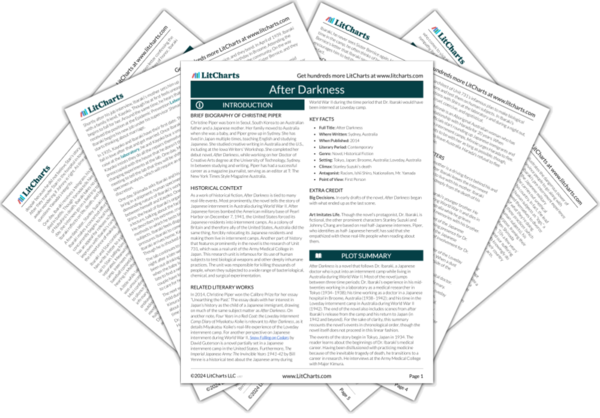Mori is the elected mayor of the Japanese population in the Loveday internment camp. He works with Mr. Yamada at the camp canteen store. Though he is initially a friend to Dr. Ibaraki, Ibaraki later realizes that he has enabled Yamada to attack Stanley Suzuki, and he thus loses respect for him.
